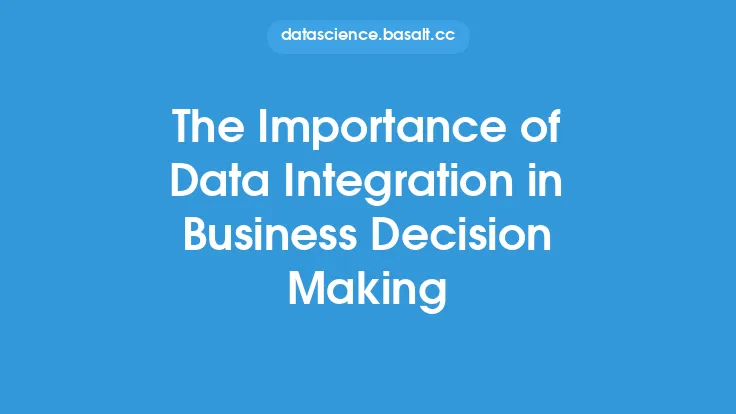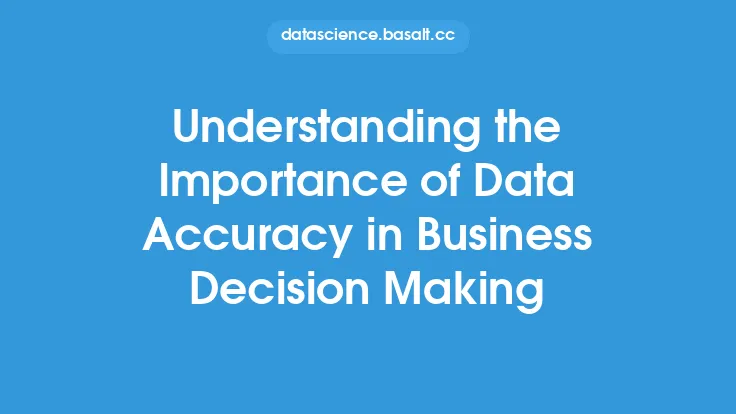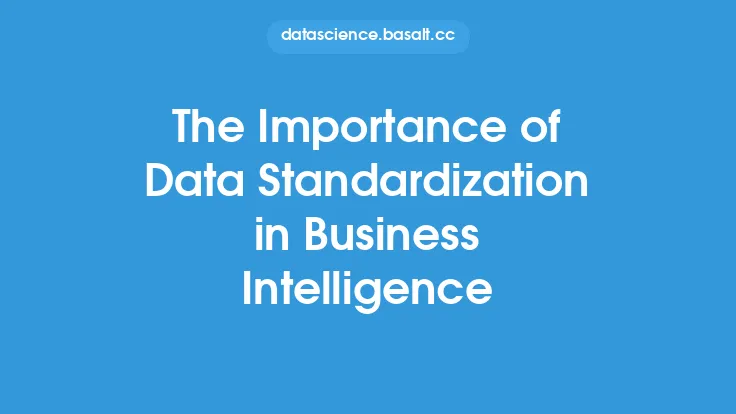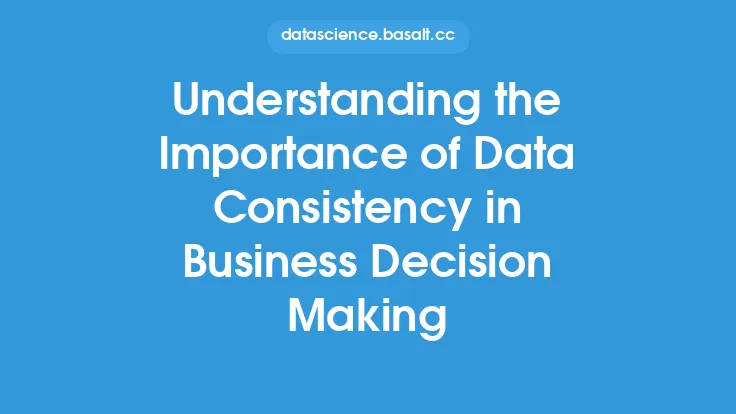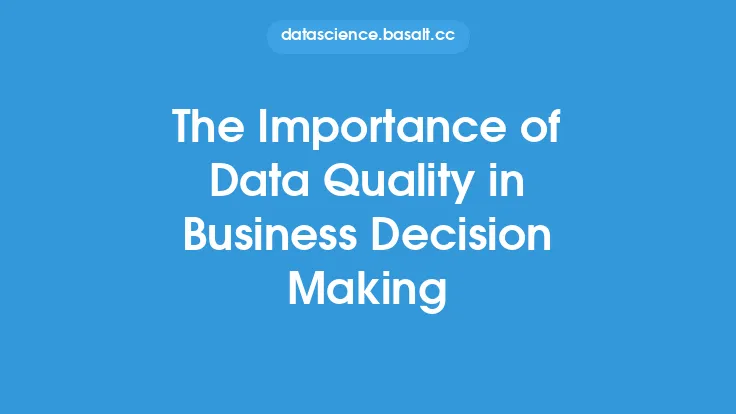In today's digital age, businesses are generating and collecting vast amounts of data, which has become a critical component of their operations. However, with the increasing reliance on data comes the need for ensuring its compliance with various regulations and standards. Data compliance is no longer a luxury, but a necessity for businesses to avoid legal, financial, and reputational risks. In this article, we will delve into the importance of data compliance in business operations, its benefits, and the key considerations for implementing a robust data compliance program.
Introduction to Data Compliance
Data compliance refers to the process of ensuring that an organization's data management practices adhere to relevant laws, regulations, and industry standards. This includes data protection, privacy, security, and governance. Compliance is not just about avoiding penalties and fines; it's also about building trust with customers, partners, and stakeholders. A robust data compliance program helps organizations to demonstrate their commitment to responsible data management, which can lead to increased customer loyalty, improved brand reputation, and competitive advantage.
Benefits of Data Compliance
Implementing a data compliance program can bring numerous benefits to an organization. Some of the key advantages include:
- Reduced risk of non-compliance: By adhering to relevant regulations and standards, organizations can minimize the risk of non-compliance, which can result in significant fines, penalties, and reputational damage.
- Improved data security: A data compliance program helps to ensure that sensitive data is protected from unauthorized access, theft, or damage, which can lead to financial losses and reputational damage.
- Increased customer trust: Organizations that demonstrate a commitment to data compliance are more likely to build trust with their customers, which can lead to increased loyalty and retention.
- Competitive advantage: A robust data compliance program can be a key differentiator for organizations, setting them apart from competitors and demonstrating their commitment to responsible data management.
- Improved data quality: A data compliance program can help to ensure that data is accurate, complete, and consistent, which can lead to better decision-making and improved business outcomes.
Key Considerations for Implementing a Data Compliance Program
Implementing a data compliance program requires careful consideration of several key factors. Some of the most important considerations include:
- Data classification: Organizations need to classify their data into different categories, such as sensitive, confidential, or public, to determine the appropriate level of protection and compliance.
- Data governance: A data governance framework is essential for ensuring that data is managed and protected in a consistent and controlled manner.
- Risk assessment: Organizations need to conduct regular risk assessments to identify potential vulnerabilities and threats to their data, and to implement controls to mitigate these risks.
- Compliance monitoring: A data compliance program should include regular monitoring and reporting to ensure that the organization is adhering to relevant regulations and standards.
- Training and awareness: Employees need to be trained and aware of the importance of data compliance and their role in maintaining it.
Technical Considerations for Data Compliance
From a technical perspective, implementing a data compliance program requires careful consideration of several key factors. Some of the most important technical considerations include:
- Data encryption: Organizations need to ensure that sensitive data is encrypted, both in transit and at rest, to protect it from unauthorized access.
- Access controls: Access to sensitive data should be restricted to authorized personnel, using techniques such as role-based access control and multi-factor authentication.
- Data backup and recovery: Organizations need to ensure that they have robust data backup and recovery procedures in place, to minimize the risk of data loss or corruption.
- Data masking: Organizations may need to implement data masking techniques, such as tokenization or anonymization, to protect sensitive data from unauthorized access.
- Compliance tools: Organizations can use a range of compliance tools, such as data loss prevention (DLP) software and compliance monitoring platforms, to help them manage and maintain data compliance.
Industry-Specific Data Compliance Requirements
Different industries have specific data compliance requirements, which organizations must adhere to. For example:
- Healthcare organizations must comply with the Health Insurance Portability and Accountability Act (HIPAA), which regulates the use and disclosure of protected health information.
- Financial institutions must comply with the Gramm-Leach-Bliley Act (GLBA), which regulates the use and disclosure of customer financial information.
- Retail organizations must comply with the Payment Card Industry Data Security Standard (PCI DSS), which regulates the use and disclosure of payment card information.
- Organizations that handle personal data of EU citizens must comply with the General Data Protection Regulation (GDPR), which regulates the use and disclosure of personal data.
Conclusion
In conclusion, data compliance is a critical component of business operations, and organizations must prioritize it to avoid legal, financial, and reputational risks. By implementing a robust data compliance program, organizations can demonstrate their commitment to responsible data management, build trust with customers and stakeholders, and gain a competitive advantage. Key considerations for implementing a data compliance program include data classification, data governance, risk assessment, compliance monitoring, and training and awareness. Technical considerations, such as data encryption, access controls, and compliance tools, are also essential for ensuring data compliance. By understanding the importance of data compliance and implementing a robust program, organizations can protect their data, build trust, and drive business success.
